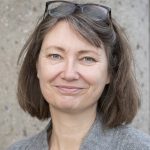Following a two days conference organised by the Church of Sweden in partnership with other organisations[1] entitled ‘100 Years of Social Pensions in Sweden: Global poverty challenges and experiences of social protection’, Civil Society Organisations from both the global South and North met in Uppsala, Sweden on 3 October 2013, and state the following:
The right to social security/social protection[2] is a universal human right, as recognized in international, regional and national conventions, treaties and laws.
- Social security/social protection should be universal, but not uniform, and must take into consideration the specific and multiple vulnerabilities and rights of politically, socially, economically and culturally excluded groups.
- National development can only be achieved if people’s basic rights are met. Lessons must be learned from the achievements in Nordic countries which, through comprehensive social welfare states, eradicated deep and structural poverty and underdevelopment. Poverty reduction through social protection did not come after economic growth but was an integral part of it.
- There are also crucial and more recent lessons to be learnt from countries in Latin America, Africa and Asia, who through strong state intervention, have managed to reduce levels of poverty and inequality and created formal jobs and universal access to essential services such as healthcare.
- Universal and comprehensive social security/social protection should address structural inequalities and be transformative and empowering. Universality promotes solidarity and social cohesion whereas means-testing is difficult, often costly and risk excluding and divides people.
- States have the obligation to fulfill the right to social security/social protection and therefore should ensure the inclusion of diverse people in the conceptualization, design, implementation and monitoring of social security mechanisms to ensure that the specific needs of all these groups are respected and met.
- The right to universal social security/social protection should be part of development and economic policies and transformative social agendas including international co-operation, of all countries and must specifically be included in the post-2015 sustainable development agenda.
- States should ensure the right to social security/social protection as a legal, enforceable entitlement to all and should provide adequate budgetary allocations.
- States should realize that the right to social security/social protection is essential for the realization of all other rights and for a life with dignity.
- It is crucial for civil society to build inclusive and strategic alliances at all levels—national, regional and international, to achieve these rights.
By November 11th the statement has been institutionally endorsed by the following organisations, a few of which were only present at Conference on October 1-2.
Afya Yetu Initiative, Kenya, Catherine Wanjiru Wambugi, Manager
The Africa Platform for Social Protection , Kenya, Marion Ouma, Program Coordinator
Bread for the World, Germany, Dr Luise Steinwachs, Policy Advisor Social Security.
Capuchin Friars Minor Social Service Society, India, Fr Nithya Sagayam
Church of Sweden, Gunilla Hallonsten, Policy Director
Citizens Coalition for Economic Justice, Korea, Hogyun Kim, Chairperson Executive Committee
Community Development Bethesda of Yakkum, Indonesia, Paula Hartyastuti, Director
Fellowship of Christian Councils and Churches in West Africa, FECCIWA, Rev Tolbert Thomas Jallah, Jr, Secretary General
Global Seniors, Denmark, Maria Justiniano
HelpAge International, UK, Eppu Mikkonen-Jeanneret, Head of Policy
Jeevandhara Social Service Trust India, Sr Mariola de Souza, Director
Kwa Wazee Switzerland, Stefan Hofmann
LO-TCO Secretariat of International Trade Union Development Co-operation, Sweden, Christer Wälivaara, Director
Madras Christian Council of Social Service, India, Isabel Richardson, Director
National Council of Churches in India, the Commission on Justice, Peace and Creation, Christopher Rajkumar, Executive Secretary,
Network for Transformative Social Protection in Asia, the Philippines, Maris de la Cruz, Co-facilitator
PRO Global /Pensioners without borders, Sweden, Dag Ehrenpreis
PWESCR (The Programme on Women’s Economic, Social and Cultural Rights), India, Priti Darooka, Executive Director
RDRS Bangladesh, Mohammad Abdur Rahman, Project Development and Reporting Coordinator
SPII (Studies in Poverty and Inequality Institute), South Africa, Isobel Frye, Director
In addition, the statement is also endorsed by two individual social protection advocates who participated in the NGO meeting on October 3, Alex Wiafe, Ghana, and Lars Bergström, Sweden.
[1] Including the LO-TCO Secretariat of International Trade Union Development Co-operation, the Nordic Africa Institute, HelpAge International, PRO Global/Pensioners without borders, theSwedish Institute for Social Research (SOFI) at the University of Stockholm, and Sida, and with support from CSO and the Swedish Research Council for Health, Working Life and Welfare (FORTE) and the National Association of Social Work (CSA).
[2]Social Security is understood by us as an outcome, that social protection is a means for. The right to social security is ensured through contributory as well as non-contributory schemes and programs.

Lämna ett svar